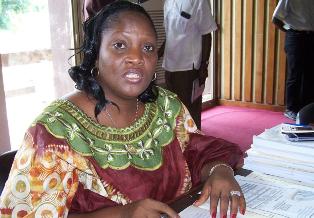Manifesting political will for people living with disabilities
During the first ever African Leaders forum on Disability held in the Malawian Capital, Lilongwe on February 10 this year, the issue of the rights of people living with disabilities took center stage. At the conclusion of the meeting under the auspices of former Malawian President Joyce Benda and the Special Olympic Committee, government, civil society and development actors committed to challenge stigma and inequity by seeking the inclusion of people living with disabilities in the continent’s development agenda.
A joint UNICEF-Special Press statement issued following the forum re-emphasized the objective of the meeting as building momentum to improve the rights of disabled people, especially in areas of health, human rights and education, by establishing an African Leadership Alliance on Intellectual Disabilities, as well as seeking to align with efforts such as the African Union’s Decade of Persons with Disabilities (2010 – 2019), with a goal of achieving full participation, equality and empowerment of people with disabilities in Africa.
“There is something about the plight that faces individuals with disabilities, including those with intellectual disabilities, that is compounded by an entrenched stigma that has endured, unjustly, for centuries and centuries. Before we can tackle the environment barriers that block our children from school, before we can address the lack of training of doctors that block our children from hospital, before we can strengthen the social policies that streamline family services, this stigma must become yesterday’s news,” said former President Joyce Banda of Malawi at the opening of the Forum. “We will be pouring valuable water into a bottomless bucket if we fail to address stigma in an aggressive, yet compassionate way. Political will is a critical element, and it is one that must have sustained commitment.”
The words may have sounded very passionate, especially in the minds of our leaders, but practical reality continues to remain of serious concern, considering conditions under which people living with disabilities continue to survive in our respective African nations. In Liberia, except for the advocacies pursued by the disabled community itself, including the Christian Association of the Blind, as well as the National Union of the Disabled, very little is heard and done about the welfare of these Liberians. While there may be an agreement with the assertion that there is something about the plight that faces individuals with disabilities that is compounded by an entrenched stigma that has endured, unjustly, for centuries and centuries, the political will of our leaders must practically be manifested in the general well-being of our fellow compatriots living with disabilities.
In Liberia, the Social Welfare component of the Ministry of Health and Social Welfare may just be too far from the reality of the February 10 Lilongwe Commitment of our Leaders’ vision for the disabled community commitment as evidence by the huge number of the visually impaired, physically challenged and mentally disturbed in the streets in Monrovia and other provincial cities across the country. The primary reason why the streets of Monrovia and other cities may be experiencing such huge number of people with disabilities is the absence of rehabilitation homes and centers to cater to their well-being, as well as the lack of vision on the part of those who run the Bureau of Social Welfare at the Ministry of Health in this direction.
In all sincerity, this is an attributing factor that undermines the President’s vision under the February 10 Lilongwe Commitment, as well as our nation’s Agenda for Transformation, which incorporates all of us, including people living with disabilities, in our national development agenda. It is in view of the foregoing that the attention of the Liberian Legislature must be drawn to the plight of these Liberians. The Ministry of Health and Social Welfare must be summoned by the Legislature to show cause why there is a huge presence of the visually impaired, physically challenged and mentally disturbed in the streets of Monrovia and other cities across the country when they (Lawmakers) had approved budgetary allotment for the Bureau of Social welfare.
[bsa_pro_ad_space id=1]




















